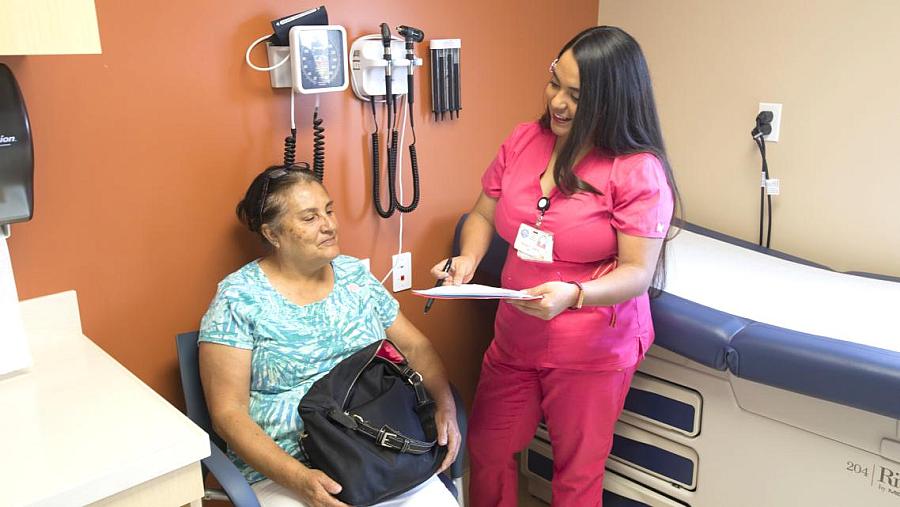How can California’s health care system do a better job of caring for immigrants?

Photo courtesy CALO NEWS
In 2022, former Gov. Gavin Newsom and the California Department of Health Care Services (DHCS) announced that undocumented adults in Californians would begin receiving full-scope Medi-Cal, the state’s public health Medicaid insurance program. With this Medicaid expansion, about 286,000 adults, 50 years of age and older would be able to take advantage of various preventive care services, regardless of immigration status.
For many people, this health coverage encouraged them to see a doctor for the first time in the United States. Undocumented Californians currently make up the largest group of the uninsured and many of them do not trust or feel included in the current health system.
My father was one of the many immigrants in the U.S. who despised going to doctors’ appointments and avoided them until his diabetes landed him in the hospital. After never attending a doctor’s visit since he immigrated to the U.S., he landed in urgent care and was hospitalized for two weeks before he was then transferred to at-home care and in bed for six months. Part of his leg was amputated.
Before that, we did not know he even had diabetes, a chronic illness that changed his life forever. For years he refused to step into a community clinic, get a check-up, or go to the doctor. He said he felt uncomfortable and often misunderstood.
He blamed the language barrier between him and his health providers. In general, he just did not feel like he belonged.
Like my father, there are millions of other undocumented people that do not have health coverage, and even if they do, often do not feel confident and supported by the current health system.
How often do immigrants in California go to the doctor? How do undocumented people navigate the health system? What helps immigrants feel more comfortable? Is there space for health coverage and health facilities that offer culturally relevant care? These are the questions I will seek to answer in my reporting for the 2023 USC California Health Equity Fellowship.
Many immigrants have high levels of chronic diseases like cancer, diabetes, or high pressure. The social determinants of health, such as good living and working conditions, education, income, neighborhood, social inclusion, and health coverage, are denied to many immigrants.
This project will aim to talk to doctors and nurses, and will look at how the region caters to the immigrant community, and how it fails them, whether due to language barriers or a lack of resources, or other issues.
The project will also look at policies, laws, and practices that are already in place today, which aim to help the immigrant community attend hospital visits, pay for their medicine or consultation, and access health benefits.
One example of work already being done is the Health4All Campaign, which began in 2013, when health advocates, community members and immigrants called for expanding health care to all Californians, regardless of immigration status. Since then, the campaign has been able to remove barriers to Medicaid eligibility and has fought to add over 1 million Californians to the program.
Ultimately, this project will look at the ways California could reach its promise of universal access to health care coverage, regardless of age or immigration status.
